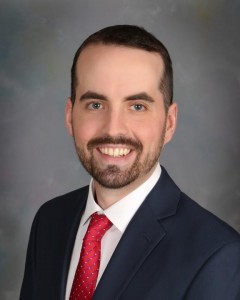Medical Model vs. Educational Model
By Greg Hoover, Speech-Language Pathologist at Keystone Pediatric Therapies
 A common question I receive upon meeting a client and his/her parents for the first time is, “My child doesn’t receive school speech therapy services, does that determine if he gets speech therapy at Keystone?” Also, I have heard from parents, “My child already gets speech therapy services in school. He doesn’t need outpatient therapy services.” Is there a difference between a medical/mental health model and educational model when determining eligibility for speech therapy services? The answer is “yes.”
A common question I receive upon meeting a client and his/her parents for the first time is, “My child doesn’t receive school speech therapy services, does that determine if he gets speech therapy at Keystone?” Also, I have heard from parents, “My child already gets speech therapy services in school. He doesn’t need outpatient therapy services.” Is there a difference between a medical/mental health model and educational model when determining eligibility for speech therapy services? The answer is “yes.”
Keystone Pediatric Therapies determines eligibility of speech therapy services using a medical/mental health model. When our speech therapy department gets a referral, the client’s physician sends our office a prescription for a speech and language evaluation with a medical diagnosis commonly using the Diagnostic and Statistical Manual of Mental Disorders, Fifth Edition (DSM-5). Common diagnoses we receive may include, but are not limited to: Expressive/Receptive Language Impairment, Verbal Apraxia, Attention Deficit Hyperactivity Disorder, Autism, Cerebral Palsy, Downs Syndrome, etc.
After review of the medical diagnosis and parent’s concerns, our speech therapists determine the direction of the evaluation process based on potential communication impairments related to the medical diagnosis and supplemental paperwork that was submitted by the parents. After the speech and language evaluation, we discuss the results with the parents. If a child presents with a speech and language impairment, a communication impairment diagnosis is reported on the evaluation, which is sent to the physician for review. The physician can either approve or disapprove the plan of care. If approved, the plan of care with the physician’s signature is submitted to the client’s payor source, his/her medical insurance. The eligibility of speech therapy services in the medical/mental health model is based on a medical need as indicated by the client’s medical diagnosis.
The educational model in the school system provides different eligibility criteria when determining the appropriateness of speech therapy services. Rather than a medical physician being the referring provider, a school professional may ask the school’s multidisciplinary team to evaluate the student to see if he/she has a disability. Also, parents may ask the student’s teacher or other school professionals to evaluate their child for a potential disability should the parents have concerns.
Once the request is made, the multidisciplinary team (i.e. teacher, school psychologist, special education teacher, speech therapist, etc.) completes a thorough and comprehensive evaluation. Parents may provide additional medical information from the student’s physician or outside medical providers; however, this information does not impact eligibility for school-based services, including speech therapy. Once the results are obtained from the multidisciplinary team, the results are presented to the parent and the appropriateness of special education services, including speech therapy, is determined based on the definition of ‘disability’ provided by the Individuals with Disabilities Education Act (IDEA). As established by the IDEA, a child may fall into the following special education categories: autism, blindness, deafness, emotional disturbance, hearing impairment, intellectual disability, multiple disabilities, orthopedic impairment, other health impaired, specific learning disability, speech or language impairment, traumatic brain Injury, and visual impairment.
In order to qualify for speech therapy school-based services, the found impairment must have an adverse effect on the student’s academic performance. If the disability has a negative impact on the student’s academic performance, an Individualized Education Program (IEP) is developed to meet the student’s unique and appropriate needs in the classroom.
In summary, the medical/mental health model and educational model of services differ when determining eligibility of speech therapy services for your child. Both have their unique abilities to meet the needs of your child in their own distinct way; however, eligibility criteria varies depending on which model your child is assessed. If you have any questions or concerns about the eligibility of your child for speech-language pathology services provided by Keystone Pediatric Therapies, please contact us by phone at: 717-709-7997.




